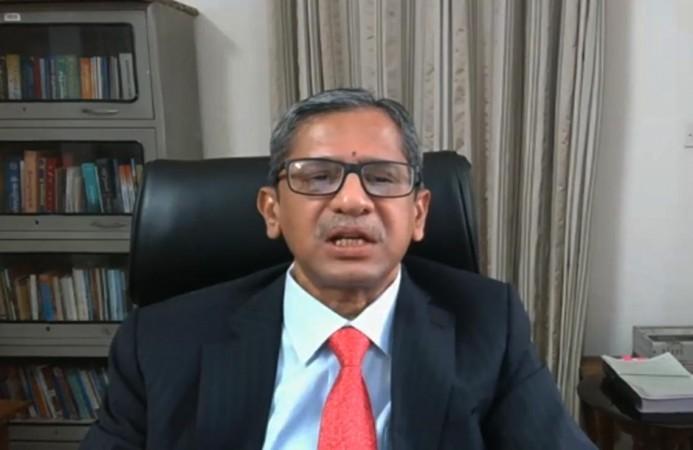Chief Justice of India N.V. Ramana on Friday orally observed that he had thought of creating a panel to examine atrocities and complaints against bureaucrats, particularly police officers, headed by the Chief Justice of the high court concerned.
"I have a lot of reservations at the way, how bureaucracy particularly, how police officers are behaving in this country.
"I was at one time thinking of creating a standing committee to examine atrocities and complaints against bureaucrats, particularly police officers, headed by the Chief Justice of the high court. I want to reserve that.. Don't want to do now," he said.

The bench, also comprising Justices Surya Kant and Hima Kohli, was hearing a plea filed by Chhattisgarh's suspended Additional Director General of Police, Gurjinder Pal Singh seeking protection from arrest in criminal cases of sedition, extortion, and owning disproportionate assets against him.
The top court declined to grant protection to suspended Singh in a case filed against him under the Prevention of Corruption Act. However, it granted him protection in two other criminal cases - sedition and extortion.
The bench said it did not wish to get into merits of the special leave petitions filed challenging FIRs filed for offences of sedition and extortion and asked the high court to decide both pending cases in eight weeks. In the corruption case, the bench, while dismissing the plea, has left it open for the petitioner to avail of the remedies available under law.
Remedies under law
On September 27, the top court told Singh's counsel that his client cannot take protection from arrest in every case, and pointed out that things take a wrong turn when people start extracting money, as they were close to the government.
"When you're good with government, you may extract... then you've to pay back with interest. This is too much, why should we grant protection to such officers?", the Chief Justice had remarked, adding that such police officers must not be protected but must be jailed.
Three special leave petitions have been moved before the apex court against the Chhattisgarh High Court orders, where the court declined to quash the FIRs against Singh. A case was filed against Singh based on a written complaint by the state Anti-Corruption Bureau, based on preliminary findings that he had amassed disproportionate assets.
Certain documents were seized from his possession, which pointed at his involvement in a conspiracy against the government.















